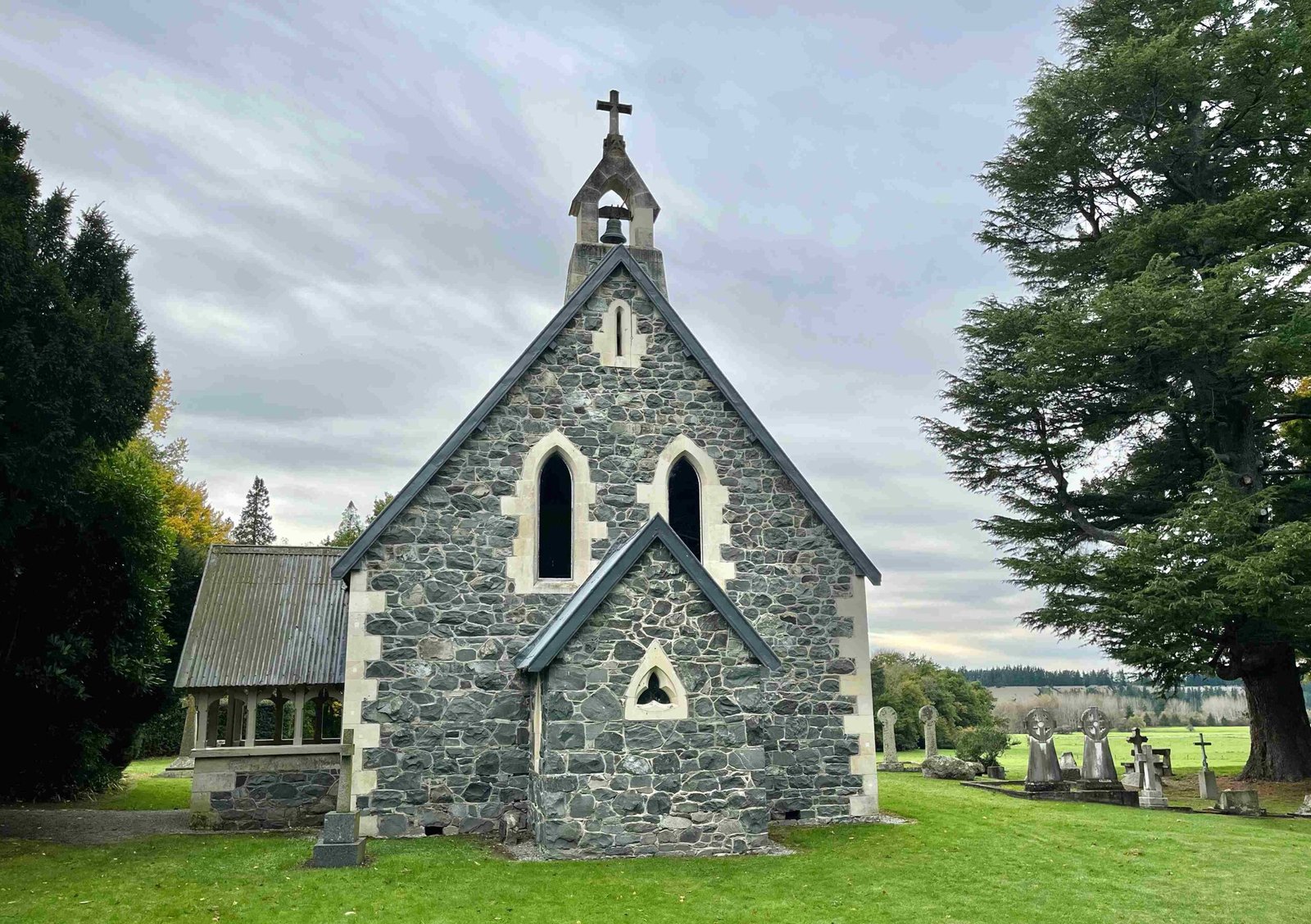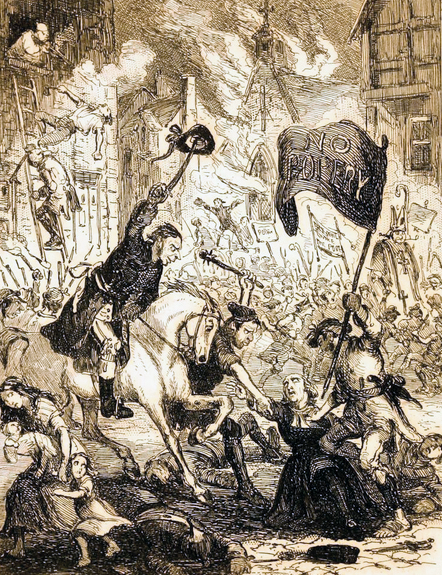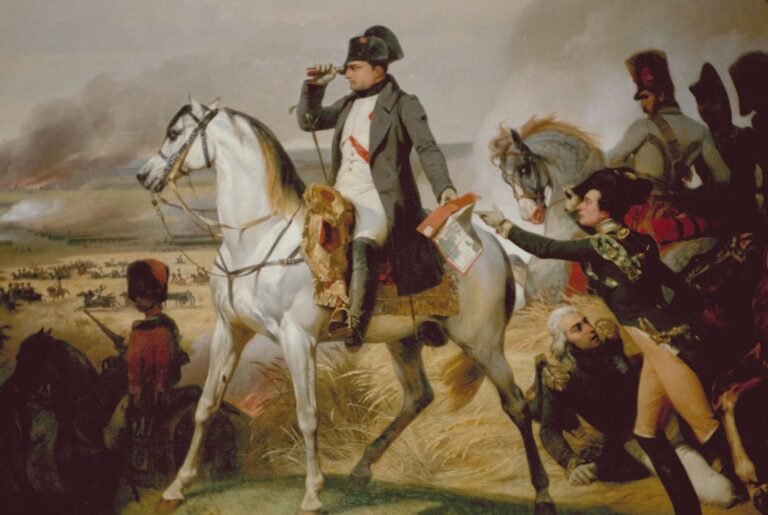The Anglican Church has a rich history and a global presence. It stands as one of the largest Christian denominations today.
Founded in the 16th century, the Anglican Church emerged from the Church of England. It balances tradition with modernity, attracting diverse followers. This church is known for its unique blend of Catholic and Protestant practices. With its roots in England, it now spans over 165 countries.
The Anglican Church plays a significant role in various communities, offering guidance and support. Understanding its beliefs, practices, and history can provide insight into its lasting influence. This introduction will explore the core aspects of the Anglican Church, shedding light on what makes it distinct and respected worldwide. Join us as we delve into the heart of Anglicanism.
History And Origins
The Anglican Church has a rich and complex history. Its origins date back to the early 16th century. This era was marked by significant religious reforms and political changes. The church’s formation and development have been influenced by many key figures and events. Let’s explore the history and origins of the Anglican Church.
Formation Of The Church
The Anglican Church, also known as the Church of England, formally began during the reign of King Henry VIII. In 1534, King Henry VIII sought an annulment from his wife, Catherine of Aragon. The Pope refused his request, leading Henry to break away from the Roman Catholic Church. He established the Church of England, with himself as the Supreme Head.
This separation from Rome marked the beginning of the English Reformation. The Act of Supremacy in 1534 was a crucial moment. It declared the king as the head of the Church of England. This move allowed for religious reforms and changes in church practices.
Key Historical Figures
Several significant individuals played pivotal roles in the history of the Anglican Church.
| Name | Contribution |
|---|---|
| King Henry VIII | Initiated the break from the Roman Catholic Church. |
| Thomas Cranmer | First Protestant Archbishop of Canterbury, key reformer. |
| Queen Elizabeth I | Established the Elizabethan Religious Settlement, solidifying Anglican doctrine. |
King Henry VIII is often seen as the founder. His quest for an annulment was the catalyst for the church’s creation. Thomas Cranmer, the first Protestant Archbishop of Canterbury, was instrumental in shaping Anglican theology. He authored the Book of Common Prayer, a foundational text for Anglican worship.
Queen Elizabeth I also played a vital role. Her Elizabethan Religious Settlement in 1559 established a middle way between Roman Catholicism and Protestantism. This helped to define the unique identity of the Anglican Church.
The history and origins of the Anglican Church are marked by significant events and influential figures. Each played a role in shaping its development and identity.
Core Beliefs
The Anglican Church is known for its rich history and deep-rooted beliefs. Understanding these core beliefs gives insight into its unique practices and teachings.
Theology And Doctrine
Anglican theology is based on the Holy Scriptures and the traditions of the early Church. It upholds the teachings of the Bible as the ultimate authority in matters of faith.
The Nicene Creed, Apostles’ Creed, and Athanasian Creed are central to Anglican doctrine. These creeds outline the fundamental beliefs about the nature of God, Jesus Christ, and the Holy Spirit.
Anglicans believe in the concept of Apostolic Succession. This means that their bishops are part of an unbroken line of succession dating back to the apostles of Jesus.
Sacraments And Worship
The Anglican Church recognizes two primary sacraments: Baptism and the Eucharist. Baptism is seen as the initiation into the Christian life. The Eucharist, also known as Holy Communion, is a commemoration of the Last Supper.
In addition to the two primary sacraments, Anglicans also observe other rites. These include Confirmation, Marriage, Ordination, Reconciliation, and Anointing of the Sick.
Anglican worship services are known for their liturgy. The Book of Common Prayer is a key resource, guiding the structure of services and prayers.
Below is a table summarizing the sacraments and their meanings:
| Sacrament | Meaning |
|---|---|
| Baptism | Initiation into the Christian life |
| Eucharist | Commemoration of the Last Supper |
| Confirmation | Strengthening of faith |
| Marriage | Union of a couple in holy matrimony |
| Ordination | Consecration of individuals to serve as clergy |
| Reconciliation | Confession and forgiveness of sins |
| Anointing of the Sick | Healing and comfort for the ill |
Anglican worship emphasizes scriptural readings, prayers, and hymns. These elements help to create a reverent and reflective atmosphere.
Church Structure
The Anglican Church has a unique structure that shapes its identity. The organization is hierarchical, with different levels of leadership and responsibility. This structure ensures order and unity within the church. Below, we will explore the hierarchy and leadership, and the role of bishops and clergy in the Anglican Church.
Hierarchy And Leadership
The Anglican Church has a well-defined hierarchy. At the top is the Archbishop of Canterbury. This position is the most senior bishop and principal leader of the Church of England. The Archbishop of Canterbury is also a symbolic leader for Anglicans worldwide.
Each country or region has its own national church, led by an Archbishop or Primate. These leaders work together within the Anglican Communion. Bishops oversee dioceses, which are regional groupings of churches. Each diocese has a cathedral, which serves as the bishop’s central church.
Local churches are led by priests or rectors. They are responsible for the day-to-day spiritual needs of their congregations. This multi-level hierarchy helps maintain order and unity within the church.
Role Of Bishops And Clergy
Bishops play a vital role in the Anglican Church. They oversee the spiritual and administrative needs of their dioceses. Bishops ordain new priests and deacons. They also confirm church members. These responsibilities ensure the church continues to grow and thrive.
Clergy, including priests and deacons, serve at the local level. Priests lead worship services, administer sacraments, and provide pastoral care. They guide their congregations in faith and practice. Deacons assist priests and often focus on outreach and service.
Both bishops and clergy are essential to the church’s mission. Their roles and responsibilities ensure the church meets the spiritual needs of its members. The structure of the Anglican Church enables effective leadership and service at every level.
Liturgy And Rituals
The Anglican Church is known for its rich liturgy and rituals. These practices form the core of its worship. The services are structured, meaningful, and filled with symbolism. Many find comfort in the familiar patterns. Below, we explore key aspects of these traditions.
Sunday Services
Sunday services are central to Anglican worship. They often follow a set order, called the liturgy. The service usually includes:
- Opening prayers
- Hymns and Psalms
- Scripture readings
- Sermon
- Holy Communion
- Closing prayers
The Holy Communion is a key part of the service. It commemorates the Last Supper. The congregation receives bread and wine, symbolizing the body and blood of Christ. This act strengthens the community’s spiritual bond.
Special Ceremonies
The Anglican Church also holds many special ceremonies. These mark important life events and liturgical seasons. Some of the most notable are:
- Baptism
- Confirmation
- Weddings
- Funerals
- Ordination
Baptism welcomes new members into the church. It involves water, symbolizing purification and rebirth. Confirmation is a rite for those who were baptized as infants. It allows them to affirm their faith.
Weddings are joyful occasions. They celebrate the union of two people in holy matrimony. Funerals offer comfort and hope to the bereaved, celebrating the life of the deceased.
Ordination is the ceremony for appointing new clergy. It is a solemn and significant event. These ceremonies connect the community and mark important spiritual milestones.
Cultural Impact
The Anglican Church has had a profound cultural impact over the centuries. Its influence extends far beyond religious practices, touching various aspects of society. From arts and music to education, the church’s contributions are significant.
Influence On Arts And Music
The Anglican Church has inspired many artists and musicians. This inspiration is evident in magnificent cathedrals, paintings, and sculptures. Many famous composers created sacred music for church services. This includes hymns and choral works that are still cherished today.
Church choirs have nurtured young talent for generations. Many renowned singers began their careers in these choirs. The church’s role in preserving and promoting music is undeniable.
Educational Contributions
The Anglican Church has also played a vital role in education. It established some of the world’s oldest schools and universities. These institutions have educated many influential leaders and thinkers. The church’s emphasis on learning has shaped modern education systems.
Church-run schools often provide quality education. They focus on moral values and academic excellence. This approach has helped many students achieve their full potential.
Global Presence
The Anglican Church has a vast global presence. It reaches millions of people across the world. This worldwide influence is a result of its rich history and extensive network.
Anglican Communion
The Anglican Communion is a family of churches. They are connected by shared beliefs and practices. Each church in the Communion is independent. Yet, they remain united by their faith.
There are more than 85 million members in over 165 countries. This makes the Anglican Communion one of the largest Christian bodies in the world. The Archbishop of Canterbury is the spiritual leader of the Communion. He helps guide and unite the different churches.
Regional Variations
The Anglican Church adapts to different cultures and regions. This leads to unique regional variations in worship and practice. These variations reflect the local traditions and customs.
- Anglican Church of Canada: Known for its inclusivity and social justice efforts.
- Church of England: The original church, with a rich history and tradition.
- Anglican Church of Australia: Emphasizes community and outreach programs.
- Church of Nigeria: One of the largest provinces, known for its evangelical fervor.
These regional differences are a strength. They allow the Anglican Church to be relevant and meaningful in diverse contexts.
| Region | Key Characteristics |
|---|---|
| North America | Focus on social justice and inclusivity |
| Europe | Rich traditions and historical significance |
| Africa | Evangelical zeal and community growth |
| Asia | Blending of local customs with Anglican practices |
| Oceania | Emphasis on community and outreach |
Modern Challenges
The Anglican Church faces many modern challenges today. These challenges shape how the church interacts with the world. They also influence its future direction.
Contemporary Issues
The Anglican Church encounters various contemporary issues. These issues test the church’s adaptability and relevance.
- Social Justice: The church must address social justice. This includes topics like racial equality and poverty.
- LGBTQ+ Rights: Many Anglicans debate LGBTQ+ inclusion. This includes same-sex marriage and ordination.
- Climate Change: Environmental issues are a growing concern. The church must promote sustainability.
Responses To Change
The Anglican Church has responded in various ways to these challenges. These responses aim to keep the church relevant and effective.
- Dialogue and Inclusion: The church encourages open dialogue. It seeks to include diverse voices.
- Community Engagement: Many parishes engage with their communities. They offer support and services to those in need.
- Educational Initiatives: The church provides educational resources. These help members understand and address modern issues.
These efforts highlight the church’s commitment to addressing modern challenges. Adapting to change is essential for the Anglican Church’s future.
Future Outlook
The Anglican Church is at a crossroads, navigating the complexities of modern society. With changing demographics and evolving cultural landscapes, its future is a topic of great interest. Let’s explore some key aspects shaping the future outlook of the Anglican Church.
Evolving Practices
The Anglican Church is embracing new practices to stay relevant. Traditional services are adapting to include contemporary music and digital elements. Congregations now have online options for worship and community engagement. These changes aim to attract a broader audience and meet the needs of a tech-savvy generation.
Youth Engagement
Engaging the youth is vital for the future of the Anglican Church. Many churches are creating youth programs and activities to connect with younger members. These programs focus on social issues, volunteer opportunities, and spiritual growth. By involving the youth, the church ensures a vibrant and active future generation.
FAQs
What Is The Anglican Church?
The Anglican Church is a Christian denomination. It originated in England during the 16th century Reformation. It combines Catholic and Reformed traditions.
Who Founded The Anglican Church?
The Anglican Church was founded by King Henry VIII. He established it in 1534 after separating from the Roman Catholic Church.
What Are The Beliefs Of The Anglican Church?
The Anglican Church believes in the Holy Trinity. It emphasizes scripture, tradition, and reason. It practices sacraments and values inclusive worship.
How Is The Anglican Church Governed?
The Anglican Church is governed by bishops. It has a synodical structure with clergy and lay representatives. Each province is autonomous.
Conclusion
The Anglican Church offers a rich history and diverse traditions. It connects people worldwide through faith and community. Its teachings focus on love, service, and spirituality. Anyone can find support and guidance here. Exploring this church can deepen your understanding of faith.
You might discover new perspectives and strengthen your beliefs. Visit a local congregation or read more to learn. Embrace the journey of spiritual growth and connection.








